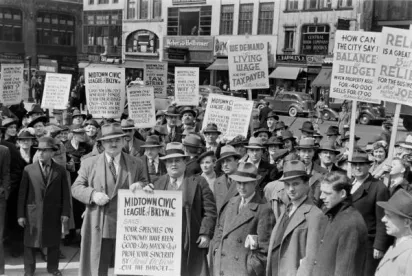Winning a bid protest at the Government Accountability Office (GAO) is hard. GAO’s statistics say that only 12% of all protests filed last year were sustained. But when you do win, GAO often will recommend that the agency reimburse you for the costs of pursuing your protest. At that point in the process, the hard work is mostly done; it should only be a matter of time before you receive payment from the Government, right?
In a July 5, 2016 decision, GAO denied a successful protester’s claim for reimbursement of costs that were not adequately documented. The decision, Cascadian American Enterprises—Costs, B-412208.6, July 5, 2016, shows how to (and how not to) submit a claim for protest costs after you’ve already won.
The protester, Cascadian American Enterprises (CAE), won its protest against the Army Corps of Engineers award of a small business set aside contract for removal of broom, brush and other vegetation at Joint Base Lewis-McChord, Washington. In Cascadian American Enterprises, B-412208.3, B-412208.4, Feb. 5, 2016, 2016 CPD ¶ 29, GAO sustained CAE’s protest and found that the agency: (1) conducted discussions with the awardee but failed to provide the same opportunity to CAE; and (2) found CAE to be unacceptable under the experience factor, a responsibility-type finding, but failed to refer the matter the Small Business Administration for a Certificate of Competency review. GAO’s decision also told the protester that it needed to file a certified claim for costs directly to the agency within 60 days, “detailing the time expended and the costs incurred” in filing and pursuing its protest.
Instead of doing that, however, the protester submitted a one page invoice with three line items and no detail. In response, the agency requested an explanation for the hours expended on the protest (noting that the 354 hours claimed equates to “9 full work weeks”). The agency also explained that a protest can only claim actual costs incurred and so the protester should submit “evidence of [the owner’s] actual hourly rate of compensation or salary at CAE.” The agency advised CAE that it would satisfy that requirement by providing “tax returns or other official documentation.” The protester responded with only generalized statements about the hours spent on its protest and forwarded its response to GAO which treated it as a request to recommend the amount of reimbursement from the agency. After several more exchanges between the protester and the agency, GAO denied the protester’s request and ruled that the protester had not met the established minimum standards. GAO listed the documentation needed to meet those standards:
-
support for the amounts claimed for each individual expense (including cost data to support the calculation of claimed hourly rates);
-
the purpose for which the expense was incurred; and
-
how the expense relates to the protest.
GAO cautioned that the burden is on the protester to submit an adequately-supported claim to the agency in a timely manner. And, GAO offered these words of explanation:
Although we recognize that the requirement for documentation may sometimes entail certain practical difficulties, we do not consider it unreasonable to require a protester to document in some detail the amount and purposes of its claimed efforts, and to establish that the claimed hourly rates reflect actual rates of compensation.
It is hard enough to win a protest at GAO. For successful protesters that also receive GAO’s recommendation for reimbursement of protest costs, you should take care to document fully your costs. GAO has held in other cases that protest costs can include reasonable attorneys’ fees and fees of expert witnesses and consultants as well as internal labor costs for work on a bid protest. Although the Army and GAO here appear to recognize that there can be some flexibility in what documentation is required, the more detail you can offer, the better—and it’s always a good idea to keep contemporaneous time records to track your internal labor hours. You don’t want to win your protest costs and come out on the losing end of a claim for costs that GAO already said you won.




 />i
/>i

